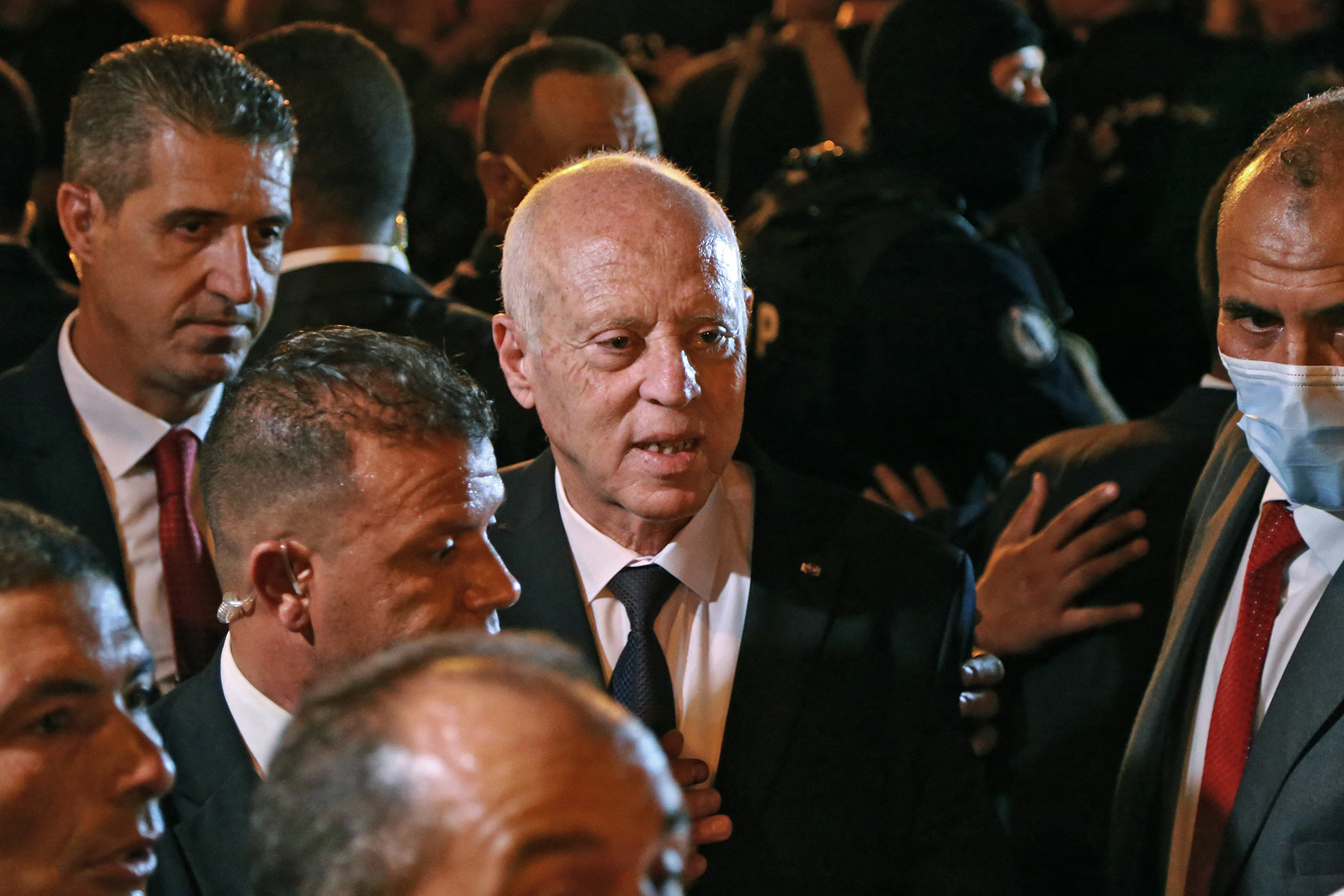US Defense Secretary Lloyd Austin said today, Tuesday, that Tunisia's dream of an independent government is in danger, while French President Emmanuel Macron described the referendum on a new constitution in Tunisia as an "important stage" in the political transition process.
Last month, Tunisian President Kais Saied proposed a new constitution, according to which he granted himself absolute powers through a referendum, in which the electoral commission said that the turnout was 30%, while the opposition parties said that this number was exaggerated.
Speaking Tuesday at a ceremony for the US Africa Command, Austin reiterated US criticism of recent developments in Tunisia.
"The United States is committed to supporting our friends in Tunisia, and anywhere in Africa, especially those who are trying to establish open, accountable and inclusive democracies," Austin said.
US Africa Command, headquartered in Germany, is responsible for all US Department of Defense operations in Africa and surrounding waters as well as training and security cooperation with countries on the continent.
After the referendum, US Secretary of State Anthony Blinken and the new US ambassador to Tunisia, Joey Hood, expressed their concerns about democracy in Tunisia, and the Tunisian authorities called in charge d'affaires at the embassy to file a complaint.
The United States has been an important donor country to Tunisia, especially in terms of development and security assistance, since the 2011 uprising that toppled the authoritarian rule of President Zine El Abidine Ben Ali and brought democracy to the country.
Tunisia is now seeking a rescue package from the International Monetary Fund to avoid a financial collapse.
French welcome
On the other hand, the French presidency said that President Emmanuel Macron described - during a phone call with his Tunisian counterpart Kais Saied - the referendum as an "important stage" in the ongoing political transition, calling on Saeed to work for a "dialogue in which all parties participate."
The presidency added in a statement that Macron stressed the need to complete the ongoing reforms in institutions within the framework of a comprehensive dialogue with respect for Tunisia's sovereignty.
The French president also stressed that Tunisia can count on France's support in its talks with the International Monetary Fund to obtain a loan, provided that the reform program is implemented.
He also said that France is ready to work with Tunisia to meet the country's food needs in the face of shortages caused by the war in Ukraine, one of the world's largest grain producers.
The new constitution grants broad powers to the head of state, in contravention of the parliamentary system in place since 2014.
The constitution stipulates that the president assumes the executive power with the help of a prime minister who appoints him and can dismiss him if he wants, without Parliament having a role in this.
On July 26, the Independent High Authority for Elections announced the acceptance of the new draft constitution, after gaining the confidence of 94.6% of voters in the referendum on it.
Several Tunisian political forces rejected the results of the referendum, such as the National Salvation Front, the Ennahda Movement, and the National Campaign to Overthrow the Referendum (a coalition of 5 leftist parties), considering that 75% of the people did not participate.
On July 28, the head of the electoral commission, Farouk Bouaskar, said that 2,630,094 voters participated in voting on the draft constitution out of 9,278,541 voters (30.5 percent of those registered).
The referendum represents a link in a series of exceptional measures that Saeed began to impose on July 25, 2021, including dismissing the government and appointing others, dissolving the Judicial Council and Parliament, issuing legislation by presidential decrees, and early parliamentary elections to December 17.

